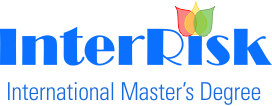You are here
What is InterRisk?
InterRisk is a new international Master's double degree programme, between Kastesart Unviversity (Bangkok, Thailand) and Paul Sabatier University (Toulouse, France) which trains future risk managers using active pedagogical methods. The coordination is done jointly by CIRAD, the Ecole Nationale Vétérinaire de Toulouse (ENVT) and the Faculty of Veterinary Medicine of Kasetsart University (FVM-KU). During the teaching we are combining lectures and real cases problem-solving, field visits, laboratory experiments and innovative computer-based tools, which provide genuine practical experience.
Courses are currently running in suitable facilities at the University of Kasetsart, Bangkok, Thailand. This offers students the unique opportunity to be trained 'in situ' in South East Asia. Six diseases (rabies, Japanese encephalitis, leptospirosis, cysticercosis, antibiotic resistance and influenza) are used as examples in each module in order to study them extensively from different perspectives. This helps students to make the link between the different methods and the tools that they are learning, and to develop an holistic understanding of how health risks can be managed.
Courses and examples are adapted to the actual epidemiological situation in South East Asia, and to field constraints. This guarantees that the experts involved in training can provide tools and knowledge that fit real-life problems.
In summary, the InterRisk Master's programme offers students the chance to approach the management of emerging diseases in their context, and the opportunity to build direct connections with the professional networks involved in South East Asia. Students are exposed to teaching from internationally recognised researchers undertaking cutting-edge research into relevant aspects of health risk management.
Through modules, this programme incorporates three aspects of public health:
- Risk assessment, including biostatistics, epidemiology, and public health;
- Risk management including outbreak investigation, development and implementation of contingency plans and health programs; and
- Transdisciplinary aspects of health risks, including social and economic determinants of health as well as management of risks in vulnerable ecosystems.
For more information about each module, please refer to the outline for the InterRisk Master's Programme Year 1 and the InterRisk Master's Programme Year 2.
The InterRisk program allows students to join international and cross-sectorial networks of professionals involved in One Health approaches. With this solid background, students can access a wide range of career opportunities in the field of public and animal health, as well as in ecology or the environmental sector. Some InterRisk degree recipients may engage in academic or research through Ph.D. programmes.













